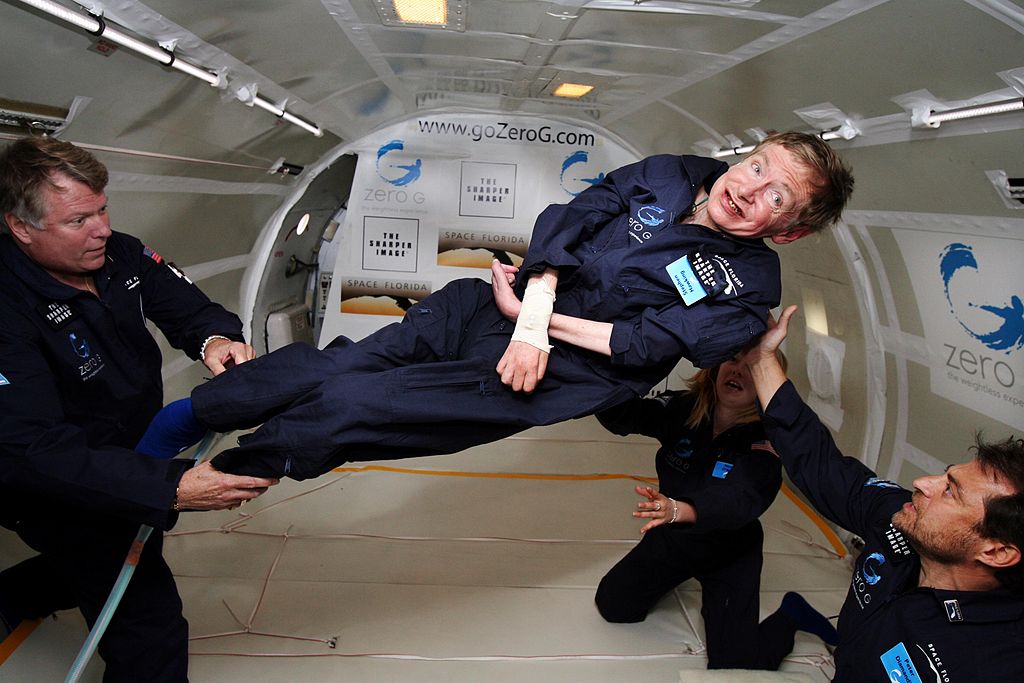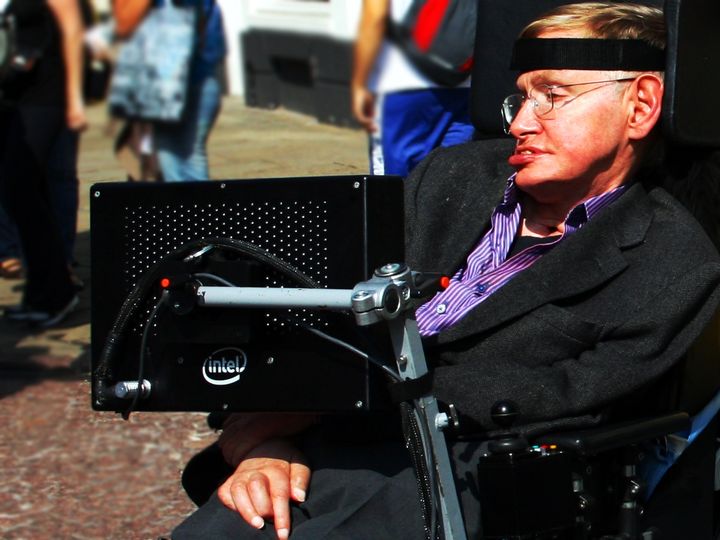
Stephen Hawking is a physicist who is fascinated with how the universe came to be, a field of study known as cosmology. The 63-year-old is perhaps best known for contributing to studies of the Big Bang (how the universe began) and those frightening singularities more popularly known as black holes.
A long-time Star Trek and space program fan, he says on his official biography that he is hoping to make it into space someday. And if he does make it there, he will likely be the first human to communicate exclusively with the help of a computer. This is a necessity for Hawking given that he has a neurological condition known as amyotrophic lateral sclerosis ("Lou Gehrig's Disease") that affects his speech.
"Since 1997, my computer-based communication system has been sponsored and provided by Intel Corporation," Hawking writes on his website, which explains how the computer efficiently predicts what words he needs. "A cursor automatically scans across this keyboard by row or by column. I can select a character by moving my cheek to stop the cursor."

Stephen Hawking taking part in a "zero-gravity" flight. Credit: Wikimedia Commons
As his main interface with the world, Hawking's computer is his tool for talking to the public, conveying scientific findings and otherwise doing his work. Intel is proud of its work, saying that the computer could be even more powerful if Hawking wanted a completely new system. (He doesn't.)
"It would probably look very different," wrote Ken Kaplan, Intel iQ Managing Editor, in December. "It might use cutting-edge eye tracking technology or an electroencephalogram (EEG) approach, which translates brain activity into simple commands."
And now anyone can use the system Hawking uses, as Intel just released it on software site GitHub. The hope is that the so-called Assistive Context-Aware Toolkit (ACAT) can help other people with similar conditions, according to the BBC.
Predictive speech is used for many applications these days. Talking to our phones via Bluetooth to answer calls, doing Internet searches, even speaking in place of typing if we're tired or our hands are not as efficient at doing work as our hands. And with the source freely available, surely more applications could be found than these.
What ideas do you have to improve computing technology? Let us know by launching a HeroX challenge.
Top image: Stephen Hawking. Credit: Wikimedia Commons








